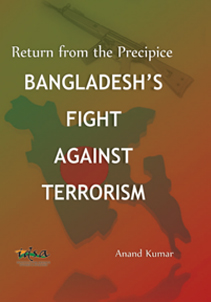Return from the Precipice: Bangladesh’s Fight Against Terrorism
- Publisher: Pentagon Security International
The image of Bangladesh of being a ‘moderate Muslim country’ was tarnished at the turn of the 20th century. The country known for its Sufi Islam was witnessing a spurt of Islamic radicalism. While delineating the threat posed by Islamic radicalism to Bangladeshi politics and by Indian insurgent groups to Northeast India, the book also focuses on their sources of finance. This book marks an advance over other works on the same topic as it discusses the actions taken by the Sheikh Hasina led Awami League government to counter terrorism.
- ISBN 978-81-8274-697-8,
- Price: ?. 595/-
- E-copy available













